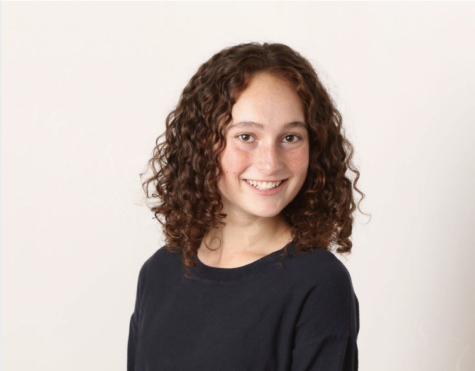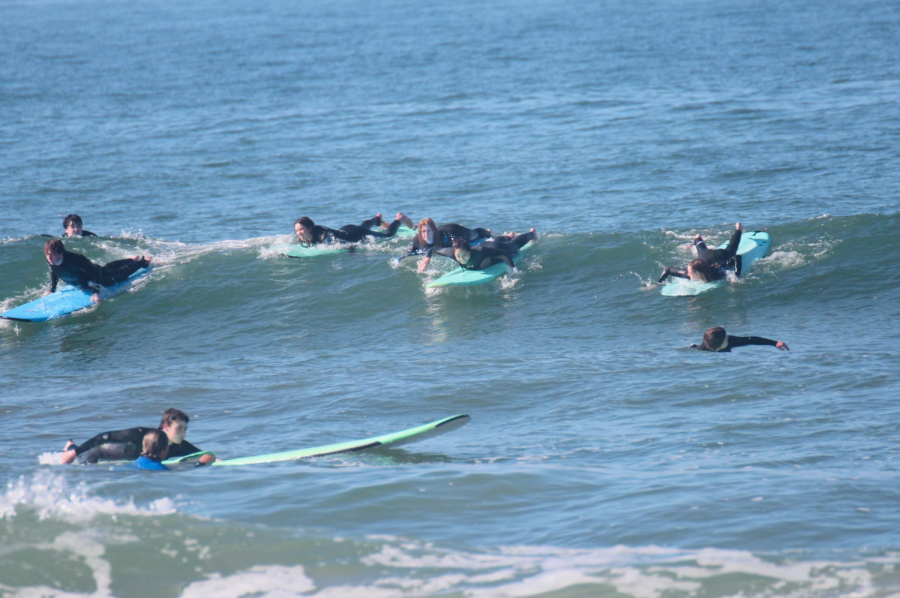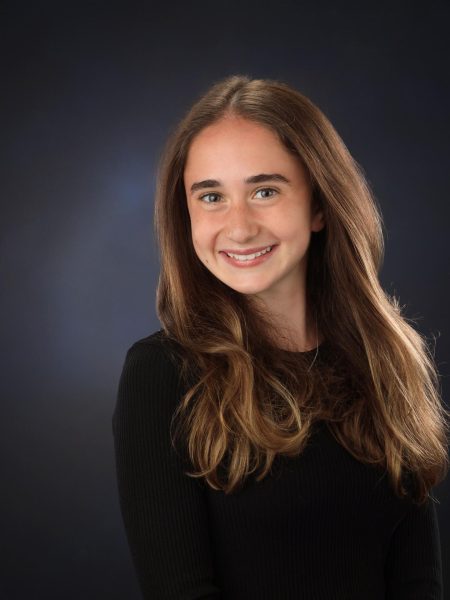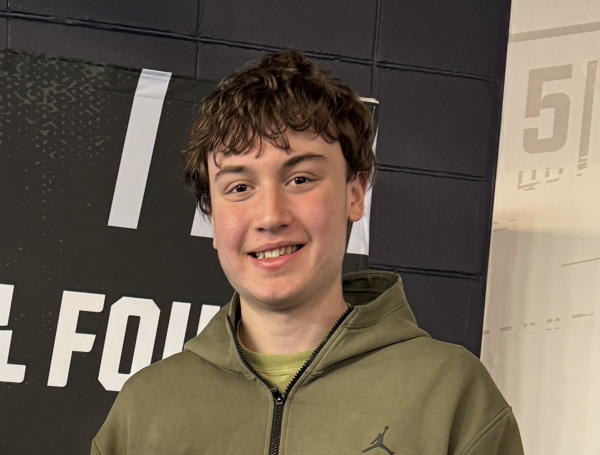Project Week: For All Its Academic Innovation and Extravagance, It Is a Microcosm of Latin
Students learn to surf during their 2022 oceanography project at Newport Beach.
In the minds of those who view it from a distance, Latin’s Project Week might boil down to merely a set of school-orchestrated, purchased experiences. Indeed, a typical field trip’s bagged lunch and notebook are sometimes replaced with a bikini or rock-climbing gear. Yet to equate the annual pedagogic expedition with just a third week of spring break is to miss the many ways in which it epitomizes the most exceptional features of a Latin School education.
For students, the magic begins with the release of the coveted Project Week catalog—if only all students devoured each new edition of The Forum as quickly as they do this holy list. From “Find Your Inner Chef” to “American Studies in the American Capitol” to “Cajun and Creole Culture in South Louisiana,” options are striking for their unique forms of experiential learning. Latin’s courses themselves, though based at the corner of North and Clark rather than the larger globe, are structured to offer similar variety and opportunities for discovery.
At Latin, one might become an expert coder, discover a diversity of Latin-American literature, study bioethics, or begin to understand the psychology of genocide. The curriculum pushes us out of our comfort zones—perhaps not in the same way you may be pushed off the side of a mountain on a two-wheeler during a biking project, but in the same spirit—and our desires to dive deeper into one particular topic are often met with more choices than we can fit into our schedules.
And while you can’t get much more experience-based than a project that dips oceanography learners into the ocean itself, Latin’s programs are often rooted in tangible experience. Mock Nuremberg trials, lab-based science classes, even the infusion of native Spanish speakers from Madrid into our world language blocks—a typical week at Latin includes far more learning than a Project Week might, but our school still tries to get our feet wet.
Of course, the most remarkable and priceless asset in both Latin’s academics and Project Week are the teachers who infuse lessons with thoughtfulness and relevance. To take a full week away from their families—after months of budgeting, research, organization, and obsession over travel details—is no small feat. Uniformly, students return from Project Week with a new appreciation for the compassionate humans that stand at the front of our classrooms. While Latin students may moan about the workloads and deadlines faculty impose, the school’s teachers are nonetheless revered as dedicated professionals determined to maximize student potential and growth.
Despite its reflection of the very best of Latin—from our unique diversity of course offerings to our talented and passionate faculty—Project Week flexes the privilege of a Latin School education and the limber finances of much of its clientele. The week’s excess is something we often find ourselves hiding from friends at other schools, especially if we are traveling out of town. We ultimately get to spend the week with school work out of sight and out of mind as we explore the history of Chicago’s LGBTQ+ influences, practice speaking Spanish in Buenos Aires, or learn musical theater skills from London’s West End theaters. These endeavors extend beyond the typical high school canon, and they also are not opportunities that are equally accessible to all Latin students.
The school covers the project costs for those already receiving full tuition assistance. But prices limit some students to in-town options most years, while many of their peers cross their fingers and hope to leave Chicago every time.
Project Week is not the only cause for money to seep into our conversation. Costly senior treats, four-figure Prom dresses, and extravagant spring breaks all breed unfortunate, tone-deaf comments. When so much wealth exists, wide disparities are an unavoidable byproduct, and they have the ability to both empower and exclude.
In essence, Project Week is a heightened representation of Latin itself. Students engage in curiosity-driven experiential learning year-round; faculty are consistently committed and creative; and it would be naive not to acknowledge the generous funding that allows Latin to be just that. Sometimes a recognition of this privilege is uncomfortable—as it should be—but hopefully such unease compels us to both express gratitude and use the gifts of a Latin education to strengthen our larger communities.

Eden Raviv (‘23) is eager to bring relevant stories and perspectives to the Latin community in her second year as Editor-in-Chief. Eden joined The...
























































